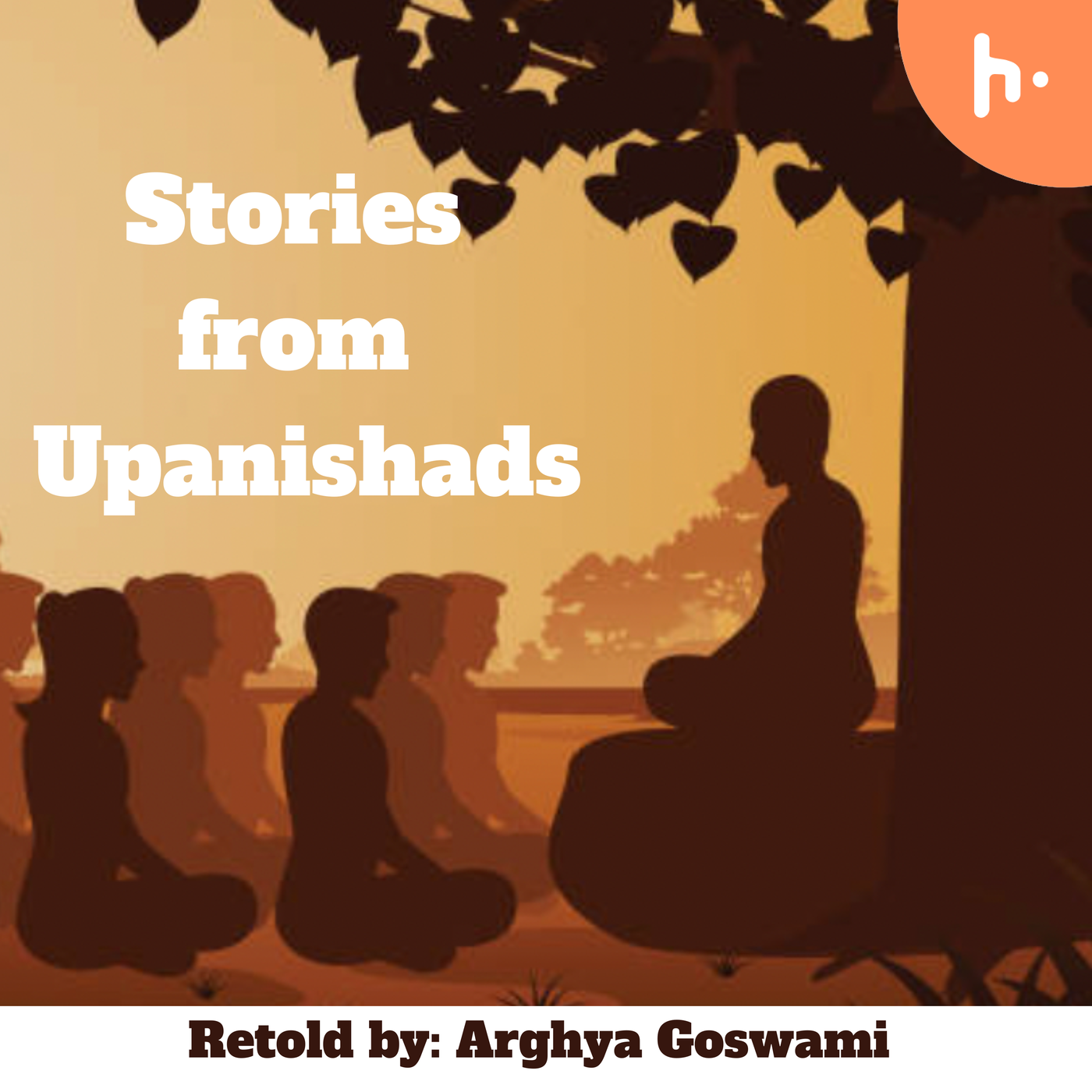Episode 16- Story of King Pravahana, Sage Uddalaka Aaruni and Shwetaketu
Description
My dear friends and listeners, it’s been a while I could upload any new episode. The reason being multiple, but here I am with a new story from the Upanishads. Before I begin, my earnest request to you to follow, subscribe, like, share and download my podcast. It will immensely help me to keep going and provide you with these contents. Also please do write to me at my email address [email protected]. I receive emails from my listeners and we discuss lot of things and often goes into a discovery session on various questions. It’s real fun and interesting.
Today’s story is a follow up or continuation stories from three characters on which I have already told you earlier. Pravahana’s story was discussed in Episode 14 i.e. Story of 3 friends - Pravahana, Silaka and Chaikitayana and Uddalaka Aaruni and Shwetaketu’s story was discussed in Episode 15 - Tat Tvam Asi - Story of Uddalaka Aaruni and Shwetaketu. I would highly recommend you to listen to them to understand the continuity.
As per the book - The character of the Self in Ancient India by Brian Black brings in portrayal of character contributes in philosophical position of the texts. Such as the character of Shwetaketu, which has been mentioned in the Brihaddarankya Upanishad, Chhandogya Upanishads and Kausitaki Upanishad. As per Upanishadic researcher Patrick Olivelle, there are variations in the character and presentation and different Upanishads present the same story in a different ways. He argues that this variation in presentation is deliberate and that each version has its own narrative logic. So different portrayals of Shwetaketu and Pravahana Jaivali in different Upanishads tells us something about the overall stance. Olivelle concluded that Brihaadaaranyaka Upanishad favors the east and is critical about Kuru-Paanchala Brahmins and presents Shwetaketu as a rude and spoiled brahmin. However in Chhandogya Upanishad the portrayal is more conservative and presents the story of Shwetaketu and Uddalaka Aaruni more positively. Thus portrayal of certain characters in the Upanishads is a part of narrative strategy and political positioning of the texts. If incase you have not listened to my story of Tat Tvam Asi, please do listen to that episode. In Brihaadaaranyaka and Chhandogya Upanishad, Shwetaketu’s story introduces the teachings of five fires and the two paths whereas in Kausitaki Upanishad it introduces the doctrine of the path to heaven.
Another important point to note is that in CU seem to emphasize on the formal instructions between the teacher and student more such as Story of Tat Tvam Asi. BU focuses mostly on debates such as stories of Yaagnavalkya.
Today’s story is featured in Brihaadaaranyaka Upanishad Chapter 6, section 2. Chronologically this story falls after episode 15, when Shwetaketu gained the knowledge of Tat Tvam Asi from his father Uddalaka Aaruni.
As per book - “Political History of Ancient India” by Hemchandra Raychaudhuri, Pravahana Jaivali was a Paanchaala king and contemporary to King Janaka of Videha. We have already heard his story when he and his two other friends exchanged their experiences of Brahman and how he brought out the significance of Om. As a king Pravahana was a good ruler and was ruling his kingdom as per the ancient Hindu Polity as explained by Bheeshma in Shanti Parva of Mahabharata. Pravahana was a man of action, knower of truth and a preceptor of Aatman.
As we have seen that courtroom of King Janaka of Videha was filled with scholars and well-versed brahmins, so was King Pravahana’s courtroom. It was also filled with innumerable eminent scholars and brahmins questing for fame, name and money.
Today’s story begins from the point when Shwetaketu weaponised with the knowledge of vedas and true knowledge from his father about Brahman comes to King Pravahana’s courtroom.
Completely drenched in arrogance about the knowledge of vedas and Brahman, which he used as a means to measure oth
More Episodes
Today's story is taken from Maitreya Upanishad. This story is featured in chapter 1 of the Upanishad. This chapter describes the dialogue between the great ascetic king Brihaadratha from the Ikshvaaku dynasty or Solar dynasty and Sage Saakaayana.
Please like, share, subscribe and download my...
Published 09/23/23
Published 09/23/23
The part 2 of Maandukya Upanishad deals with "AUM". It describes verses 8-12 from the Upanishad. It tells us about "AUM", how do you pronounce it? What happens when you chant "AUM" and many other secrets lying hidden in the syllable "AUM"?
How it is connected to Viraat Purush, Hiraanyagarbha,...
Published 09/01/23


